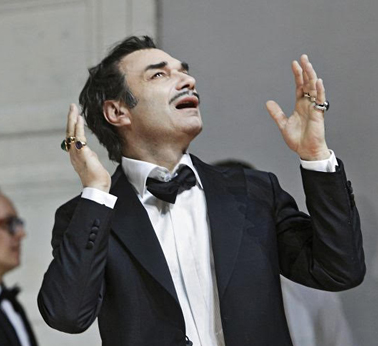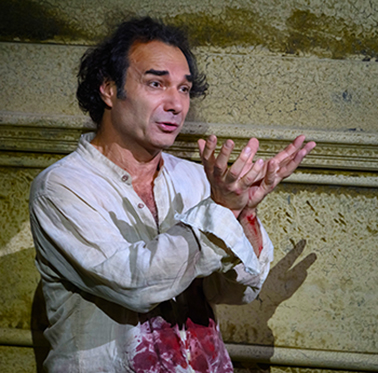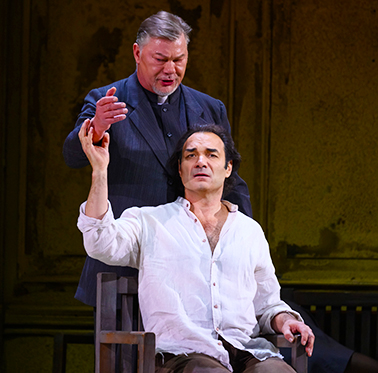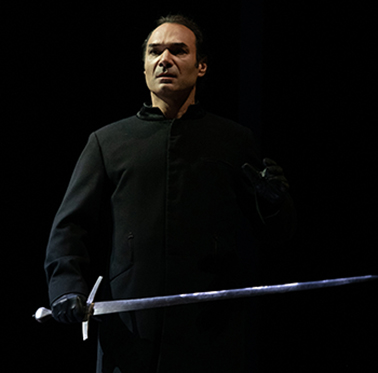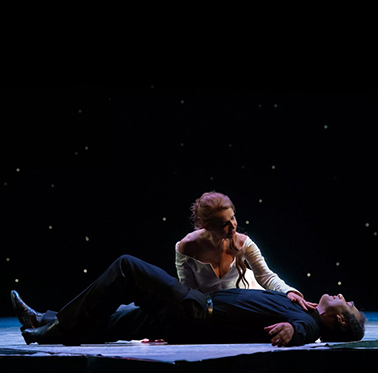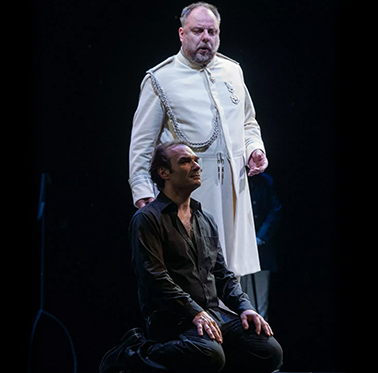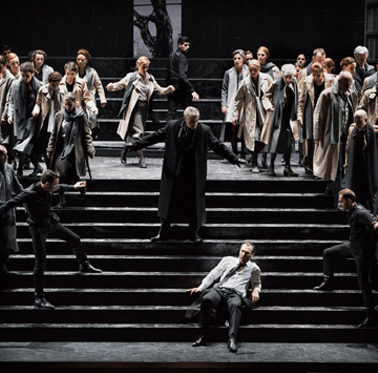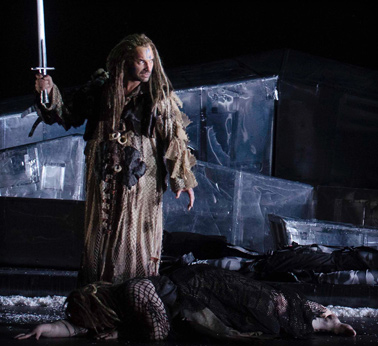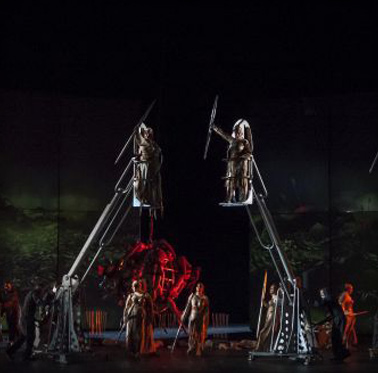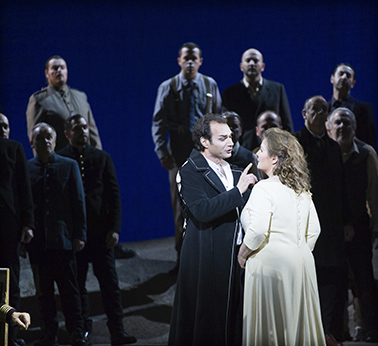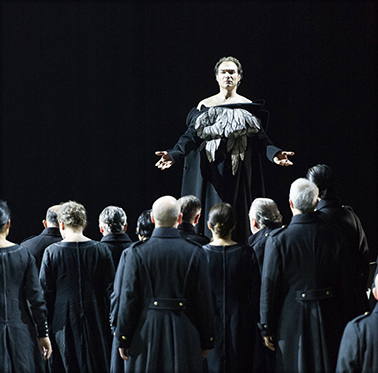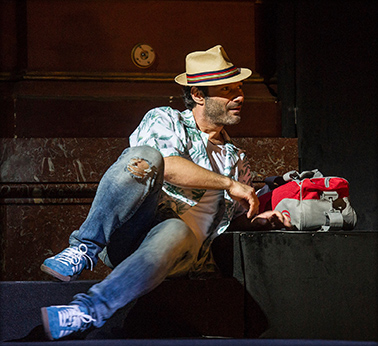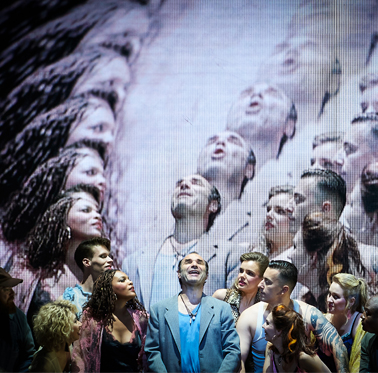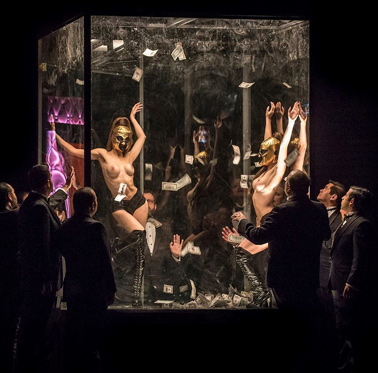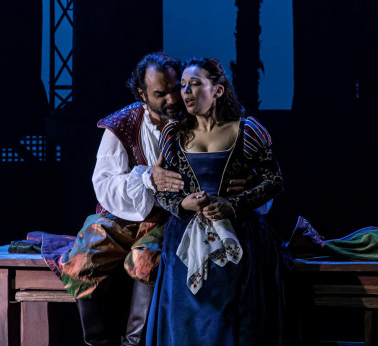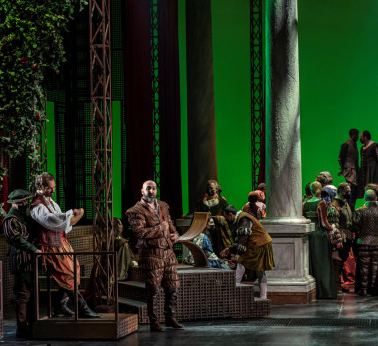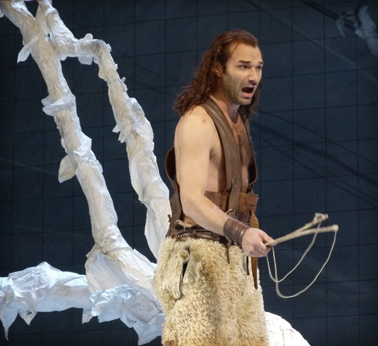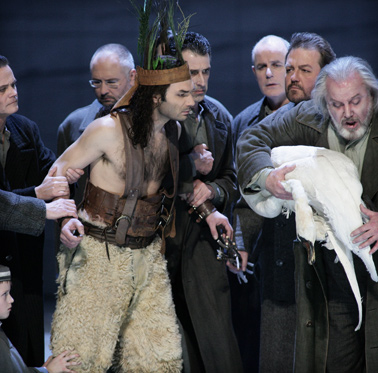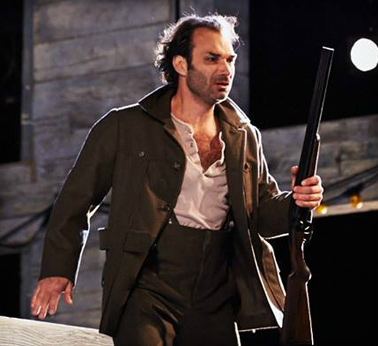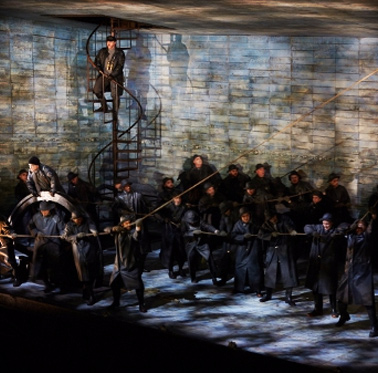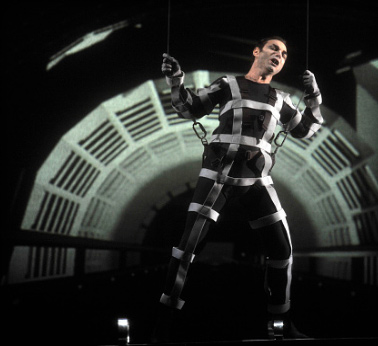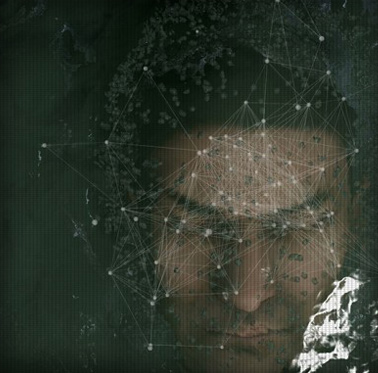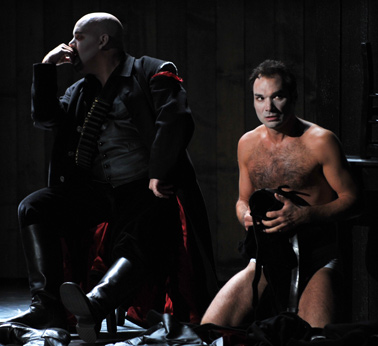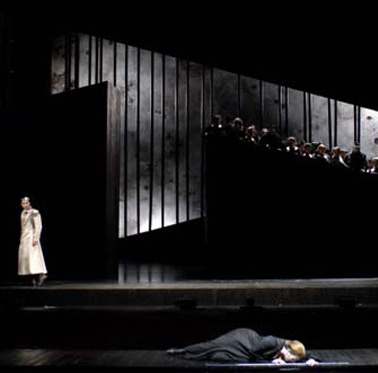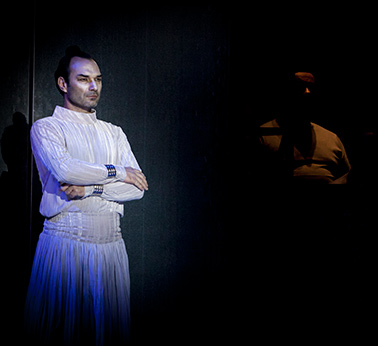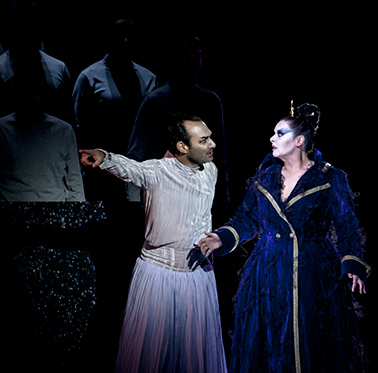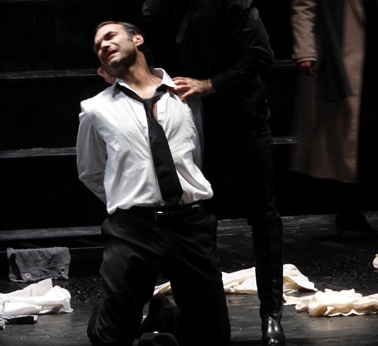Toulouse 2023

C’est au III que Nikolai Schukoff laisse pantois, faisant preuve d’un engagement, d’une « défonce » (osons le mot) sidérants. D’une vaillance que l’on croirait inépuisable, le ténor autrichien se déchaîne vocalement, mais aussi scéniquement, retenant le spectateur suspendu à ses lèvres, dans un monologue dont on sait pourtant à quel point il peut se transformer en « tunnel » quand on ne l’habite pas. Depuis vingt ans que nous suivons sa carrière, jamais nous ne l’avions vu et entendu aussi exceptionnel.
Par comparaison, Michael Weinius, dernier Tristan en date de l’Opéra Bastille, fait figure de troisième couteau.
Opéra magazine, Richard Martet
Toulouse 2023

Over the top performance, Mr. Schukoff never losing the colored, clarion timbre and control of his voice even in the moments of surpassing ecstasy (…) Tristan’s delirium was portrayed in very intimate terms, its tortures wrenchingly enacted by Mr. Schukoff, its climaxes were ecstatic visions indeed.
opera today, Michael Milenski
Toulouse 2023

Nikolai Schukoff EST Tristan. Son physique est rare pour un ténor, proche de la perfection. Grand et élancé, il incarne une forme d’héroïsme charismatique, rien que par sa seule présence. Le jeu et le chant du terrible acte III sont ceux d’un grand Tristan. La voix reste souveraine tout du long, ce beau métal noble, cette émission droite et franche sont de l’étoffe des héros. Nicolai Schukoff a également l’endurance du rôle. Toulouse a vu la naissance d’un Vrai Tristan !
classiquenews, Hubert Stoecklin
Toulouse 2023

Nikolai Schukoff stupéfiant de vaillance dans le rôle de Tristan, garde la même énergie, la même fraicheur vocale sans afficher le moindre signe de fatigue jusqu’au dernier souffle de son héros. Il incarne un Tristan d’aspect jeune, attirant et il met sa technique des plus solides (attaques nettes, justesse et stabilité absolues ) et sa voix au timbre clair, lumineux au service de l’émotion toujours juste. Son agonie qu’il ne surjoue pas, ses derniers échanges avec Kurwenal bouleversent.
resmusica, Jany Campello
Toulouse 2023

Autre consécration, celle de Nikolai Schukoff. Le timbre demeure tout au long de la représentation clair et incisif. Il ne manque ni de vaillance, ni d’une énergie qui résiste et persiste sur la distance. Son interprétation d’un Tristan jeune d’allure et conquérant trouve son aboutissement au troisième Acte qu’il aborde avec toute la générosité requise, sans affecter en rien la profondeur des sentiments qu’il exprime. Il semble même encore frais et disponible au terme de ce marathon scénique et vocal.
Olyrix, José Pons
